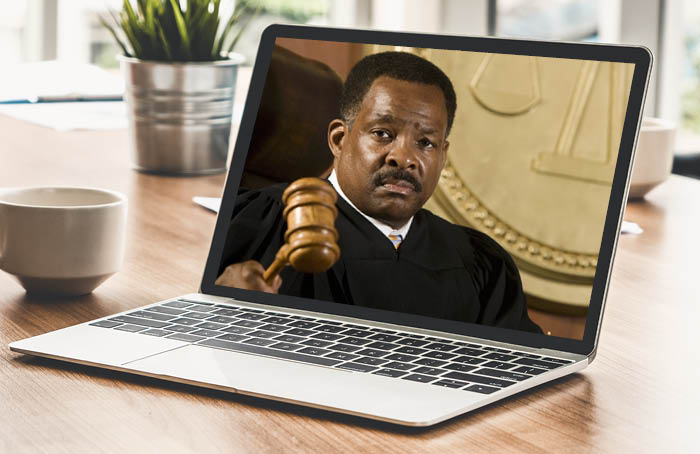WE UNDERSTAND WHAT IT MEANS TO BE INJURED,
UNABLE TO WORK, AND FACING AN UNCERTAIN FUTURE.
We recommend calling Martin Law first, without hesitation. We can answer any and all questions and help determine if you have a claim. The following frequently asked questions and answers may also provide immediate and valuable information to injured workers who find themselves in this difficult situation.

Yes. Even if you are receiving non-taxable worker’s compensation simultaneously, you need to pay taxes on the Social Security Disability that you would have received irrespective of the workers’ compensation benefit.
Social Disability benefits are taxable when your household income exceeds a certain threshold. It can depend on certain things, including your marital status and income from other sources.
If you have further questions about this or similar scenarios relating to offsets, you should consult with a tax specialist.
~ Andrew Yang, Esq.

If you return to work after settling your workers’ compensation case and face retaliation or discrimination from your employer, you should file a complaint with either the Equal Employment Opportunity Commission or equivalent local enforcement body. In Philadelphia, this is the Philadelphia Commission on Human Relations, or PCHR. You should also contact an attorney who practices employment discrimination law – you can do this before or after you file a complaint, but there are very strict time requirement to file the complaint so do not hesitate to contact an attorney.
Unfortunately, because you settled your workers’ compensation case, you cannot re-open it for any reason. Even if you could, the Workers’ Compensation Act does not cover retaliation or employment discrimination because these scenarios are covered by the above set of laws enforced by the EEOC and other local parallel agencies (like the PCHR). If you have further questions, you can always contact our office for a referral to a trusted employment discrimination attorney. ~ Timothy Worrall, Esq.

It is not illegal or uncommon for insurance companies to hire private investigators to follow employees who’ve applied for and/or are receiving Pennsylvania workers’ compensation benefits. The private investigators may observe you in public places and take photos and/or videos of you to be used against you in court. However, there are limitations as to what the private investigators are allowed to do. Pennsylvania law prohibits the private investigators from trespassing on your private property and/or entering your home without your consent. ~ Joseph A. Conlan, Esq.

No. The overwhelming majority of Pennsylvania Workers’ Compensation Judges are not scheduling in person hearings. An exception to the Pandemic Proceedings may occur if you are pursuing a Claim for Disfigurement and the Judge permits a live court session in order to view your scar. You should have access to a smart phone or computer in order to attend your hearing by a video link, which the Judge provides. In addition, a telephone number which you may use to call-in for your hearing accompanies the video link, however, the Judge prefers that you attend by video if you are scheduled to testify for your case. Always check with your attorney who is well-versed In the Judge’s Practices and Procedures. ~ Lisa D. Eldridge, Esq.

Your employer and/or insurance are required to pay for reasonable surgical and medical services rendered by a physician or other health care provider. Medicine, orthopedic appliances and prostheses are also covered.

Often after an accepted work injury and subsequent return to work a client is denied treatment when their provider is told the file is “closed”. This is a tactic used by insurance carriers to avoid payment for treatment. The file may be “closed” in the insurance company’s records, meaning they do not have it assigned to an adjuster as an active file, but there is a difference between their internal procedures and the law. Most providers will not bill if told the file is closed and needed treatment or even prescriptions are often not obtained. Once there is an accepted work injury, the medical portion is open and payable as a matter of law indefinitely and can only be “closed” by agreement, Judicial Order or a formal process called “Utilization Review” which, if not appealed, only applies to the provider reviewed. Do not wilt and go away as the carrier wants when told the “case/file is closed”. Seek counsel for a legal analysis of your rights. ~ John Dogum, Esq.

Being without an income while pursuing a workers’ compensation claim is a problem many injured workers face when a claim is denied. Insurance companies use denials in this way to put pressure on injured workers. However, injured workers have options. When a claim is denied, other benefits may be available to fill the gap in income while an injured worker waits for his workers’ compensation benefits to be awarded. Depending upon the circumstances, short-term disability benefits; long-term disability benefits; unemployment compensation benefits; and social security disability benefits may fill a gap in income while waiting for workers’ compensation benefits. However, it’s important to speak with an attorney before applying for any other benefits since receipt of these benefits can impact your workers’ compensation claim in many ways.

The Commonwealth of Pennsylvania allows injured workers to receive workers’ compensation benefits and Social Security “old age” retirement benefits at the same time. Employers or Insurance Companies paying workers’ compensation benefits are still entitled to receive a fifty percent (50%) credit of the Social Security retirement or “old age” benefits received by an injured worker while they are also receiving workers’ compensation checks. This offset does not apply if the Social Security retirement benefits were received prior to your work-related injury. It is also important to note that Social Security disability benefits automatically convert to Social Security retirement “old age” benefits when you reach full Social Security retirement age.

If Social security finds that your condition meets one of the listings of impairments, that will often result in an approval in the early stages of a case. They additionally maintain a list of conditions for which they will grant a compassionate allowance and award benefits early. Early approvals are usually reserved for the most severe cases or cases that the impairment is likely to result in death. Favorable outcomes in disability claims can never be guaranteed, however some claimants over 50 years of age have a greater chance of a favorable outcome earlier if their case meets certain conditions. To determine whether your case might meet these conditions, you should consult with an attorney about your case.

Absolutely. The insurance companies will hire investigators to run a search on your social media presence. Anything that you post/update on a public profile can be utilized against you. As a result, you always want to be aware of what you are posting. If you have any further questions about how your social media profile can be used against you, feel free to contact us. ~ Amit Shah, Esq.

The short answer is yes. You can see your own doctor for treatment. The PA WC provides that the employer can direct your treatment for the first 90 days from the injury. Thus, they could deny payment if you treat outside the panel of physicians directed by the employer. If they deny the case or after 90 days, you can treat with your own physician. You may want to consult with your attorney, as they should be able to let you know if the doctor will testify on your behalf and/or if they will wait for payment while your case is in litigation. – John O’Donnell

It might be tempting to start driving for Uber or Lyft, after your work injury to supplement the loss of income from your work injury. However, driving for these companies is working and earning an income. It MUST be reported to your employer’s insurance company as such. Failure to report this income to the insurance company or your attorney can severely jeopardize your case, and potentially have you prosecuted for insurance fraud.
Any income you receive from Uber or Lyft while being paid workers’ compensation benefits may reduce the amount paid to you by the insurance company.

When Social Security issues a denial in a case, they will cite the reason(s) for the denial. Most often cases are denied because Social Security did not receive a response from some medical provider(s) or they believe the impairments are not sufficiently severe to prevent an individual from performing some type of work. Most cases should be appealed when they are denied, at least to the hearing stage so that the case can be presented to a live judge who will make a decision independent of the prior decisions. It is advisable to consult with and to obtain attorney representation to increase your chances of a favorable outcome. – Mark Davis

To prove eligibility, the most important thing is a supportive provider willing to cooperate with your claim.

Many people get disability insurance through their employers. For some, this can be satisfactory. Others may also want to be covered under additional private policies to have the chance to recover more in the case of a disability. ~ Zachary Lipshutz

The answer to this question depends on your policy. Since they vary greatly, it is important to be familiar with the provisions in your policy. At Martin Law, if we represent you, we certainly can investigate your specific policy for this answer.

If you have surgery due to your work-related accident the value of your case may increase if the surgery is not 100% successful. In other words, if the surgery does not return you to the physical condition that you were before your work injury. If the surgery is completely successful, the value of your workers compensation case does not increase because the surgery returns you to your preinjury state or very close to your preinjury state. Therefore, you should be able to return to work at little to no loss of earning power.
If your work causes an injury, illness or disease, you may be eligible to collect workers’ compensation. This does not cover intentional, self-inflicted injury or injury that occurs while under the influence of illegal drugs or alcohol.
You are entitled to employer-paid medical treatment and if your disability exceeds a seven-days period, wage-loss benefits. Wage-loss benefits must begin within 21 days of the employer’s notice of your injury, unless your claim is denied by the insurance company.
Your coverage begins on the day of hire.
Wage-loss benefits are equal to approximately two-thirds of your average weekly wage, up to a weekly maximum.
If your employer accepts your claim and has posted a list of at least six physicians or health care providers in your workplace, you must select one from the list for initial treatment. You must continue treatment with a provider on the list for a period of 90 days after the first visit.
Your employer and/or insurance are required to pay for reasonable surgical and medical services rendered by a physician or other health care provider. Medicine, orthopedic appliances and prostheses are also covered.
You should ALWAYS take advantage of the free consultation with a Martin Attorney. If the injury is extremely minor, and you missed no work–and your employer agrees that the injury took place at work, it may not be necessary to hire an attorney.
The limit that a workers’ compensation attorney can charge you varies by state. In Pennsylvania, a workers’ compensation lawyer will typically charge you a 20% contingency fee for their services, payable upon receipt of your benefits.
Without knowing the facts of your case and extent of your injury, no attorney can answer that question. Understand that workers’ compensation covers wage loss and medical expenses, not pain and suffering. Martin attorneys will help you determine if you should settle your case.
You must report you injury to your employer or supervisor immediately, and let them know that you were injured on the job.
Nearly every Pennsylvania employee is covered, including seasonal and part-time workers, non-profit and unincorporated businesses.
The law provides several types of workers’ compensation benefits:
– Payments For Lost Wages if you are disabled and unable to work
– Death Benefits for surviving dependents if the injury results in death, surviving dependents may be entitled to benefits.
– Specific Loss Benefits if you have lost the use of your thumb, finger, hand, arm, leg, foot, toe, sight, hearing or have a serious and permanent disfigurement on your head, face or neck.
– Medical Care, which includes reasonable surgical and medical services rendered by a physician or other health care provider.
This depends upon the specifics of your case. Take advantage of the free legal consultation with Martin Law to obtain an experienced, objective opinion.
An affidavit is a written statement, usually notarized, and used in court proceedings as evidence. An affidavit is often utilized for a first hearing in a Petition to Terminate/Suspend/Modify your benefits filed by the insurance carrier. The Affidavit includes a description of your injury along with the treatment you’ve received and explains why you feel you cannot return to work and/or perform certain duties.
Yes. Pennsylvania mandates that all employers carry workers’ compensation insurance on all employees. If an employer fails to provide insurance, they are subject to criminal sanctions. If you are injured while working for an uninsured employer, the state’s Uninsured Employer Guarantee Fund was created to provide all workers’ compensation benefits, but there are numerous complicated rules that apply to such coverage making it difficult and time-consuming to obtain.
The short answer is yes. While social security retirement is not affected by workers compensation claims, social security disability is affected by workers’ compensation. The income from the workers’ compensation combined with the social security disability payments, when combined, cannot exceed 80% of your average earnings prior to becoming disabled. There is a caveat based on whether you start collecting your social security retirement benefits before or after your work injury. You should contact the attorneys at Martin Law if you are unsure and/or have questions.
Many short-term disability policies prohibit any payment if your disability in due to a work injury. It is still important for you to apply for short-term disability benefits, even in this scenario, because you may not end up getting approved for workers’ compensation benefits. Furthermore, filing for short and long-term disability or appealing a denial, while fighting for your workers’ compensation benefits, is important to maintain your rights under those policies. All policies are different, so it is important to understand the specific provisions of your own policy. Please contact Martin Law at 215.587.8400 so we can assist you with these complicated issues.
Yes, but unless you have only suffered an extremely minor injury and your employer’s insurance company is completely cooperating with you, you could quickly run into a difficult situation. Play it safe and smart—take advantage of the FREE Martin Law consultation and obtain solid legal advice from the beginning.
The answer is yes, but unless you have only suffered an extremely minor injury and your employer’s insurance company is completely cooperating with you, you could quickly run into a difficult situation. Play it safe and smart—take advantage of the free Martin Law consultation and obtain solid legal advice from the beginning.
You cannot sue your employer because you got hurt on the job, unless they do not carry workers’ compensation insurance—and that would typically mean they are breaking the law. This is the reasoning behind workers’ compensation laws; they protect workers and employers.
In some cases, you may be able to file a civil suit against a third party responsible for your injury. It is best to talk to a Martin attorney to determine if you have a third-party suit.
Yes, if you are eligible. However, be aware that for all workers injured after June 24, 1996 there will be a reduction in your workers’ compensation benefits, which are based upon the other benefits you are receiving.
Yes, and the information must be reported correctly. Again, don’t take chances, contact a Martin Attorney.
This depends entirely on the specifics of your case. There are a number of considerations and your attorney can help you make the best decision for you.
In Pennsylvania, injured workers with a lasting impairment can negotiate a lump-sum settlement that includes recovery of unreimbursed medical expenses and other disputed amounts, instead of receiving weekly benefit payments. There are a number of considerations you should weigh you’re your attorney before elect to receive a lump-sum settlement.
Yes. The insurance company may use an investigator to obtain evidence if they suspect you are not truly injured. The Office of the Attorney General of Pennsylvania will also launch an investigation if they receive a report of workers’ compensation fraud.
Whether you return to light duty or full capacity work, DO NOT SIGN ANY DOCUMENTS without first speaking to your attorney. You are required to make a good faith attempt at the assigned job, but if you experience any pain, you must notify your doctor immediately and follow his or her instructions. If your doctor tells you to stop working, you must obtain a note in writing and give it to your attorney.
According to Pennsylvania law, if a work injury results in death, surviving dependents may be entitled to benefits. In these situations, it is imperative to speak with an experienced workers’ compensation attorney.
Employers and Insurance companies may offer any one of a number of reasons for denying your claim. Don’t believe any of them until you speak with a Martin attorney. We know the law.
It might be tempting to start driving for Uber or Lyft, after your work injury to supplement the loss of income from your work injury. However, driving for these companies is working and earning an income. It MUST be reported to your employer’s insurance company as such. Failure to report this income to the insurance company or your attorney can severely jeopardize your case, and potentially have you prosecuted for insurance fraud.
Any income you receive from Uber or Lyft while being paid workers’ compensation benefits may reduce the amount paid to you by the insurance company.
If a person who is receiving SSI benefits gets married, it could potentially negatively impact their benefits eligibility. Their spouse’s income and assets, if high enough, could potentially cause the SSI recipient to no longer pass the means-test for SSI and thus no longer be eligible for such benefits.
A marriage generally will have no negative impacts on an SSDI recipient’s eligibility for continued benefits eligibility.
- Collecting Social Security Disability and Workers’ Compensation
- Does My Construction Site Injury Qualify as a Workers Compensation Case?
- What Counts as a Work Injury for Workers Compensation?
- Should I File a Personal Injury Claim or for Workers Compensation?
- How Does Income From Workers Compensation Affect My Tax Return?
- Martin Law College Scholarship Essay Program
- Medicare Set Aside Agreements
- For Workers Compensation, Should I Take a Lump Sum or Payments?
- Preparing For Your Consultative Examination
- When Should I Report My Workers’ Comp Claim?
- Social Media and You: How Can It Effect My Workers’ Compensation Case?
- How is Workers Compensation Calculated and How Much Money to Expect
